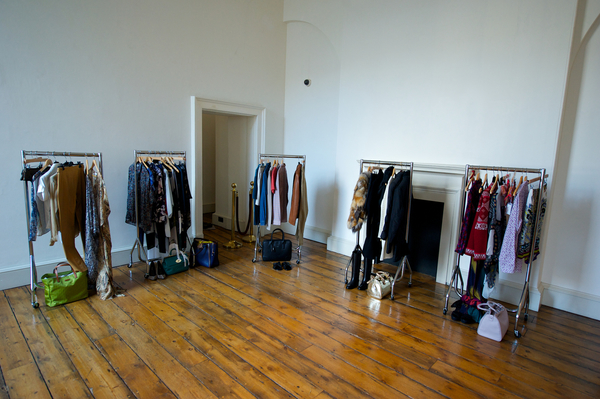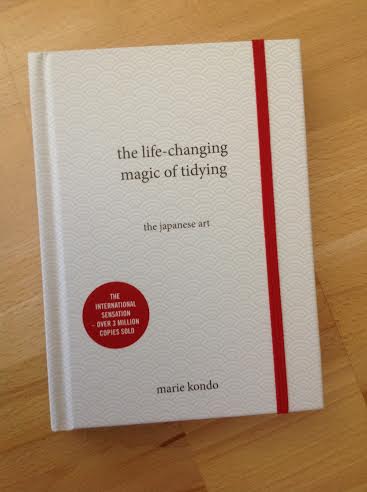 Last year I became quite obsessed with decluttering. In fact, thanks to Marie Kondo I think we all did. I have never liked being surrounded by a lot of stuff. I have always hated clutter. Which is why I am feeling rather proud. My husband and I have got rid of thousands of things. There are still a few things earmarked to go, but we are the closest to minimalism we have ever been. The flat looks fundamentally tidy even though we have a toddler. Things are also much easier to find and we have even made some money selling things. Here is my quick, but comprehensive, guide to decluttering. It will change your life, trust me.
Last year I became quite obsessed with decluttering. In fact, thanks to Marie Kondo I think we all did. I have never liked being surrounded by a lot of stuff. I have always hated clutter. Which is why I am feeling rather proud. My husband and I have got rid of thousands of things. There are still a few things earmarked to go, but we are the closest to minimalism we have ever been. The flat looks fundamentally tidy even though we have a toddler. Things are also much easier to find and we have even made some money selling things. Here is my quick, but comprehensive, guide to decluttering. It will change your life, trust me.
You need to put things into different bags,boxes or piles. The options are: Recycle, Sell, Keep, Mend, Give to Charity.
You don’t have to do it all at once so don’t get overwhelmed. You can do a room at a time, or even just a drawer of cupboard. Slow and steady is just as good as one full-on day.
My biggest tip is to keep a charity bag somewhere you can easily access. Put things in there you want to get rid of, and then when it is full you can take it to the charity shop.
You can make decluttering fun by doing it while you watch your favourite TV show or listen to music. You can even get all of the family involved. Getting rid of old stuff always feels great.
Declutter for 5-10 minutes everyday. It all adds up.
Put the handle on the hanger in your wardrobe in one direction, if you wear the item, turn the handle around. Wait a certain amount of time, say, six months, then throw out everything you have not worn.
You can give away unwanted stuff while doing good for the environment via Freecycle.org
Get rid of all your old phones. Just remember to delete your personal information and remove the SIM card. There are plenty of good websites and companion websites which will give you the best price. I use https://www.mazumamobile.com/sell-my-mobile. Just make sure you check out their reputation on trustpilot.com
You can also sell old ink cartridges. The amount you can earn is so low that I would give them to chairty instead. Cash for Cartridges pay for old ink cartridges but you have to set up an account, the withdrawal limit is £25, and their prices are so low it would take an age to get there. http://www.cashforcartridges.co.uk/ink-cartridge-recycling-prices
Personally I think it is better to donate them to the British Heart Foundation. You can download their free post label here. https://www.therecyclingfactory.com/bhf/. Other charities that take old printer cartridges include the British Institute for Brain Injured Children, RNLI, Barnados, Sense, and the World Cancer Research Fund.
I have sold all of my old gadgets. After removing my personal data of course. I used eBay.co.uk as I found they had the best prices. There are other places of course. cashinyourgadgets.co.uk, musicmagpie.com and even Apple itself will buy your old technology. It is best to remove your old hard drive before selling your old computers. Note that Apple will give you a gift card in return. They also recycle things for free that they do not buy, including PCs.
Amazon.co.uk marketplace allows you to sell books, DVDs and some other stuff. They do take a huge fee however, a massive 17.25% commission. The good news is that it is free to list. They also give you a postage credit which does not always cover the cost of posting the book, then take it away in fees.
You can also sell by Car Booting. Car boot sales are not the best place to get the top price. I have never done it personally but there will be plenty in your area. Just do a search. They tend to charge a fee to pitch up your car and sell. I would mark your prices up a bit as people like to haggle.
Other good places to sell your stuff.
Facebook groups
There is even a sell option on Facebook. You can also join groups and sell your stuff on the group.
The best way I have found of getting rid of stuff is to give it to charity. You do good and give back to the community while clearing out your home. Win win.
You can donate pretty much everything. For instance, the RSPB, DHIVERSE and the World Owl Trust will take old stamps. Your old glasses and sunglasses can go to charity shops. Branches of Boots Opticians and Dolland and Aitchinson usually have recycling bins for old glasses. You can donate your foreign currency. RNIB will take it. Help the Aged, Marie Curie and Age UK will even take old currency that can no longer be changed. Many charities will also take your old phones.
Take your old clothes to a charity shop or a local clothes bank. H&M, Uniqlo and Marks & Spencer’s all take old items of clothing.
It is best to sell furniture on Gumtree.com, Facebook groups or other local resources. Furniture and homeware does not hold its value well. If you do want to get rid of your furniture and don’t want to sell it do not spend hundreds getting someone to take it away for you. We were quoted over £400 for someone to come and take our furniture away. I donated it to the British Heart Foundation instead and they came and took it away for free.
When it comes to donating furniture the Furniture Reuse Network will take your goods and then distribute them to a charity organisation in your area. Oxfam and the British Heart Foundation also take furniture. You can also try Freecycle and Freegle where you offer your good for free to anyone who can collect them.
Gone For Good is a great social enterprise that puts people in touch with charities that will come and take away their furniture or anything else they want to donate. You use the Gone For Good app by taking a photo of your unwanted stuff on our phone and then one of the charities will come and take the goods away based on your postcode. The app is free to use and the charity will pick up your goods for free too. Great for people who don’t have a car.
When you give stuff to charity make sure you sign up for Gift Aid. This allows the charity to claim an extra 25p for every £1 you give and also lets you get some money off your tax bill. Don’t do it unless you pay tax though, you will have to pay the extra gift aid. To learn more about tax relief and gift aid go here.


